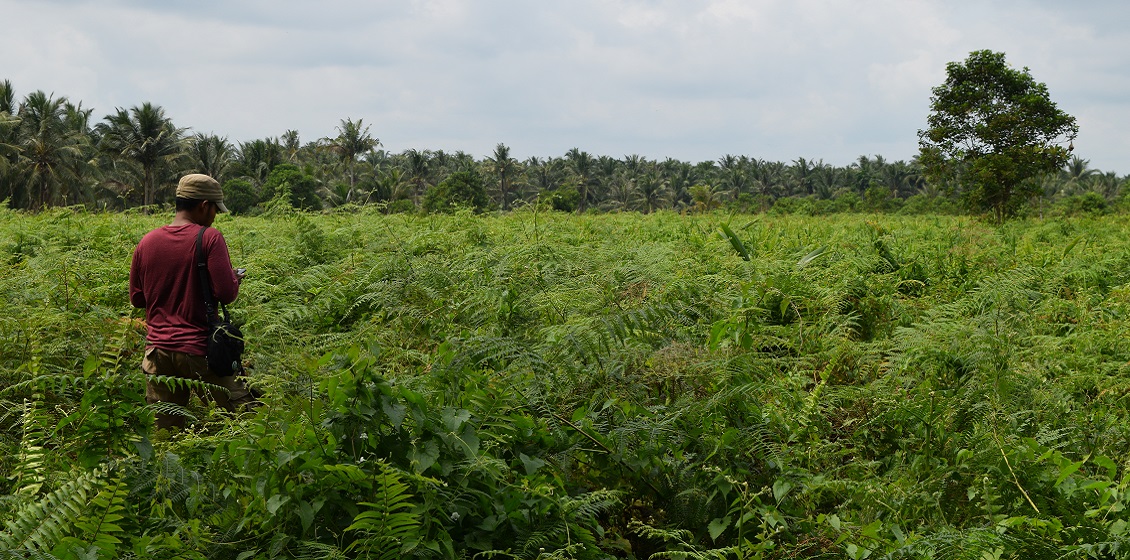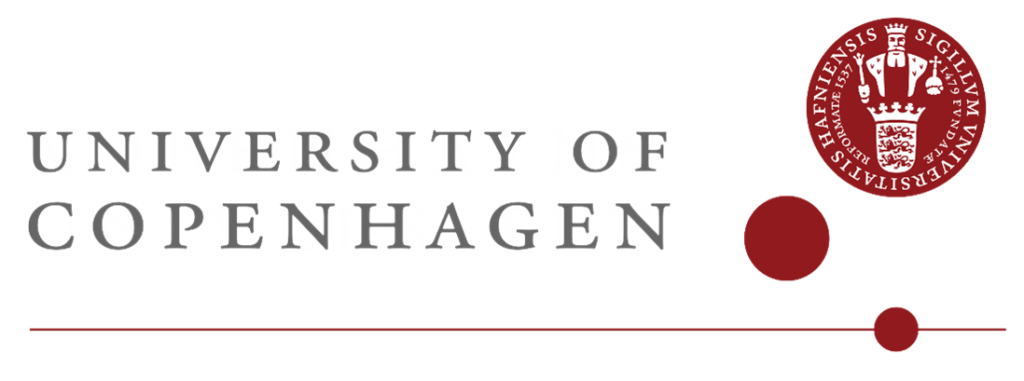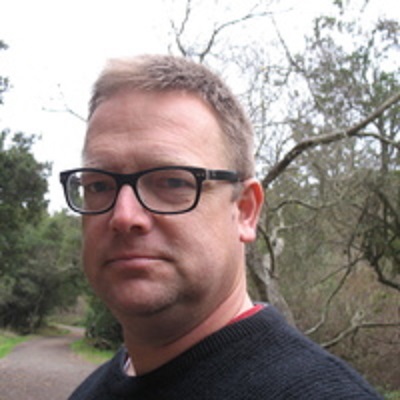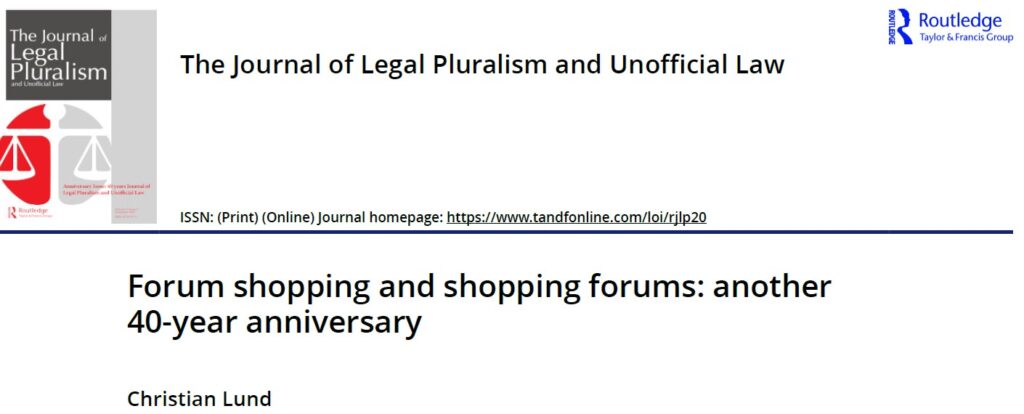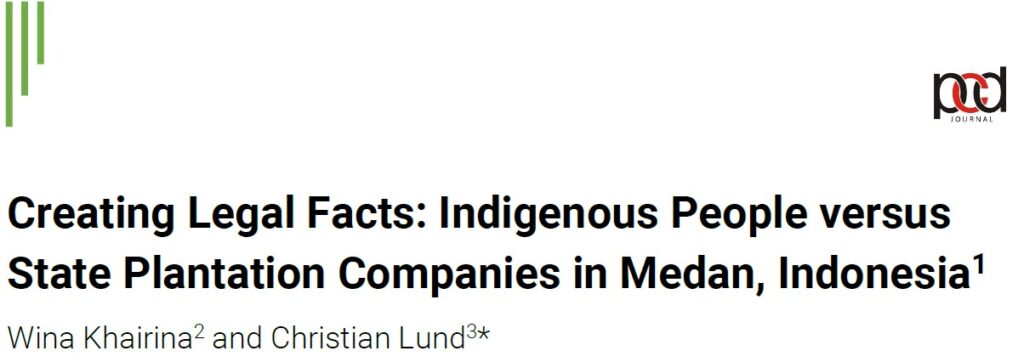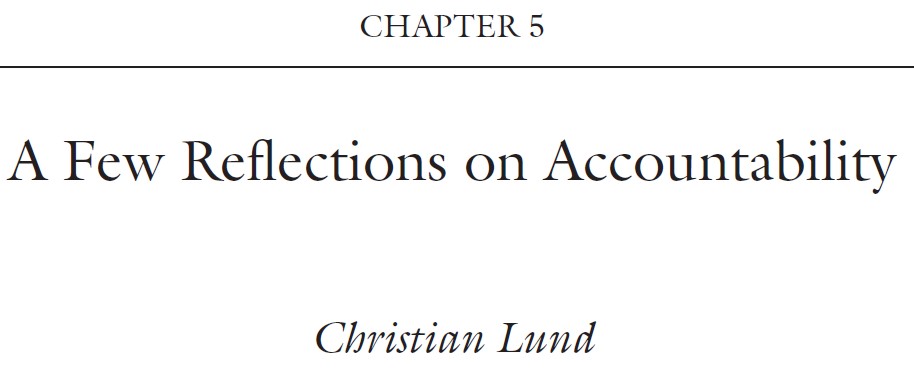A professor at Section for Global Development at University of Copenhagen moved his research on access to resources and land ownership from West Africa to Indonesia. He wishes for his colleagues that more of them would be given the opportunity to make such shifts.
”You are always welcome. We don’t have a lot of money, but for many years we have been able to find space for visiting researchers from South and North. They are welcome to stay with us for shorter or longer stays”.
Christian Lund is professor of Development, Resource Management and Governance at Section for Global Development at University of Copenhagen. A place with a long history of institutional partnerships with other universities around the world. Half of the employees at the Forestry School in Kathmandu are for instance educated in Copenhagen.
”Institutional partnerships, yes, but they are carried by humans”, Christian Lund says. ”Many of us have good personal relationships with colleagues in many other countries. During normal – non-corona – times, we frequently receive visits at the Section of Global Development. I know that the people I will be cooperating with ten years from now are the PhD’s I am currently hosting”.
”Working together for so many years means that you have a common language and you get ideas within the same horizon, regardless of whether you come from South or North. It makes it much easier to communicate”.
Global Development is a section of Department of Food and Resource Economics which was originally a part of the Royal Danish Agricultural University before its merger with University of Copenhagen in 2007. It has 10-12 permanent academic staff members, with broad expertise from the social and natural sciences. At times it has twice the number of PhD’s from all over the world.
The place has always had tradition for ”cultivating international partnerships”, as Christian Lund puts it. It has strong connections, grown through decades, with colleagues at institutions in Ghana, Tanzania, Nepal, Argentina, Peru, Indonesia, Cambodia and a range of other countries in the South.
”To host visiting scholars only costs us some time and some attention, but it’s certainly worth it”, argues Christian Lund.
He observes ”great generosity” whenever a member of the section has an interesting visit and invites all his or her colleagues to meet the visitor. ”We share networks to a large degree, which is very helpful for younger researchers”.
”Before corona, we had lunch together once a week and presented our work for each other. We hope to come back to habits like that.”
”Before corona, we – both our section and the department as such – were also arranging public lectures and events with sustainability as the main issue, and we are contributing actively to the media about the same issue”.
Access to natural resources
”Nobody can be involved in development research for long without some sort of network among South researchers”, he says. ”But the Global South reaches gradually further and further North. It’s becoming more and more difficult to define a geographic borderline for development studies”.
The academic staff at Section of Global Development doesn’t look very much at thoroughly industrialized countries. ”Many others are doing that”, as Christian Lund puts it. But currently there are indeed projects at the section which put focus on peripheral areas of the North like the Arctic and minority groups in Northern Scandinavia, and other peripheries in Europe.
”Even if the research fields might look a little random, one thing binds all our projects together. All projects are in one way or another dealing with access to natural resources as well as control and conflicts over natural resources”.
Christian Lund consider this an all-important field to study. ”When established societal structures are challenged, it will very often happen when local access to natural resources is changed, new resources are found, or other resources are running out”.
In Christian Lund’s own research, access and ownership to land is a central theme. He has worked in semi-arid areas of West Africa and very lush areas in Indonesia – but always with focus on ownership to contested land.
He was educated in development studies at Roskilde University (RUC). During his years as a student, he worked as an intern at environmental projects in West Africa, and after graduating he left the academic world to join the Danish engineering company Krüger to become consultant and coordinator for a few years at a water project in Niger.
”It was a very valuable project, nothing wrong with that, but it was pure implementation of infrastructure. I wanted to move back in the direction of research and education, so I needed to write a PhD-thesis. I left the company, obtained a grant, returned to RUC and chose to focus my research on the ongoing land reform in Niger where I had been living for some time”.
”It was a great experience for me to dig into an issue with such depth. I was fortunate with my fieldwork, but on top of that I had the privilege of having time to read properly about the issue. I got a lot of new insight from all that reading”.
He worked very much alone. Only towards the end of his three-year PhD, did he begin to build a professional network in Niger, primarily with French and Nigerien researchers, because ”only now did I have some research to show them”.
Different answers to the same questions
After the PhD, he worked as lecturer and postdoc at RUC, doing similar kinds of research in Burkina Faso and Ghana. Until he got his current position at University of Copenhagen ten years ago.
”During a sabbatical year at Berkeley in California, I met a group of Indonesian researchers who did similar research but in an entirely different context. They had an activist approach, and they were looking very much into social movements’ occupation of land”.
”As I was worried about getting too complacent or repetitive, I decided to move my academic focus to Indonesia. Questions of ownership to land and conflicts about land ownership are good issue to study everywhere; it’s always important in one way or another. But the change of context would provide new answers to the same questions.”
”Who has the right to which part of the land? How do you figure that out when there is no clear laws and no clear jurisdiction? Very simple questions, but the answers are very different from place to place”.
”In many places, the person who has cleared the land has the right to claim it as his own land. But if another person has cultivated it for years, he or she might also have a de-facto ownership claim. So, you have two opposite principles which can both be legitimate, and a lot of institutions in the local community which could all, potentially have a say in such cases. This rivalry makes the situation extremely dynamic – and interesting”, Christian Lund explains.
”In Eastern Java, Northern Sumatra and Aceh, there are plenty of resources. But in the semi-arid areas in Southern Sahel, the situation is very different. Also, the state is much more involved and has its own direct interest in the management of resources in Indonesia, compared with West Africa. Two very significant differences”.
Call for more boldness
”For me, it was extremely interesting to shift from one continent to the other”, Christian Lund continues. ”But I also had a lot to learn. To make such a shift, you need to be able to take a longer view. If I had not had a full permanent position, it would not have been possible”.
”You need to be permanently employed to take such a risk. Nowadays, it seems increasingly tough to get into a permanent job at the university. This is a shame and potentially also a danger, because people will be less and less inclined to take the necessary risks. If you have to apply for new project money every two or three years, you almost have to be able to guarantee the conclusion of your study, already at the time of application. You have to know the area extremely well from the beginning. You have to know the answers to your questions before you start. With such a system, there is a danger, that people will not dare to take the kind of risk I could from the comfort of my permanent job. There is this idea that competitive funding brings out the best in researchers. But that is only true up to a point. When competition becomes how to constantly please a research council, there is a risk that safe predictability will dominate.”
”Recently, in our section, we have been unfortunate to have a couple of research projects turned down because the reseacher was new to the country in question. That is an unimaginative reason to decline funding for a research council, I believe. How would you ever be able to broaden your knowledge, if you are not giving the opportunity to try something new?”
”If financing of research in this way is conducted with the eyes of a zealous accountant, it will increasingly be a big problem that we will get a lot of predictable research which is very similar to the research we already have plenty of. I don’t think that is a healthy situation. Research funding is, essentially, venture capital. There are risks attached. The research may fail. You prepare the best you can, with your skills and experience, but it may turn out differently than what you expected. Indeed, it should turn out differently from what you anticipated. Otherwise, why bother?”.
”I would like to see a little more willingness from the research councils to support a bold idea”, concludes Christian Lund who himself has recently been appointed chairman of the Consultative Committee on Development Research (FFU).

The Consultative Research Committee
The FFU appointed for 2022 has the following members:
- Professor, PhD, Mr. Christian Lund, University of Copenhagen, Chairman
- Professor, PhD, Ms. Lotte Meinert, Aarhus University, Deputy Chairperson
- Associate Professor, PhD, Mr. Erik Skov Madsen, University of Southern Denmark (Odense)
- Associate professor, PhD, Ms. Christine Noe, University of Dar es Salaam
- Professor, PhD, Mr. John Christensen, Sustainable Development Center, Yonsei University (South Korea)
- Senior researcher, PhD, Ms. Helene Maria Kyed, Danish Institute for International Studies (DIIS)
- Professor, PhD, Ms. Anja Kaarina Nygren, University of Helsinki
- Associate Professor, PhD, Mr. Ola Westengen, Norwegian University of Life Sciences (NMBU)
- Head of Department, PhD, Ms. Tove Degnbol, the Ministry of Foreign Affairs of Denmark


